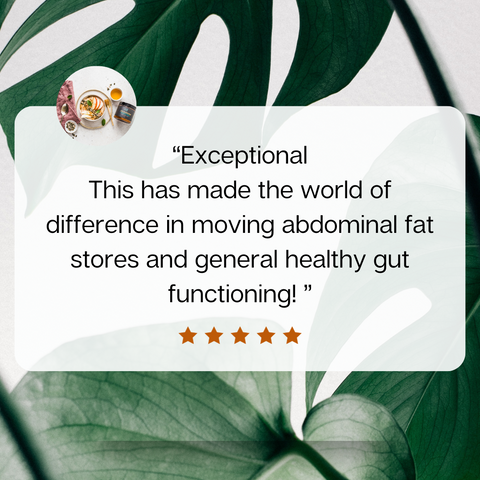Your gut microbiome influences your immune system, sex hormone concentration, your mood, and your metabolism. If we were to use your own DNA to predict your body weight it might be accurate about 50% of the time. If we were to use the DNA of your gut microbiome to predict our weight, it would be correct about 90% of the time!
Microbiome or Human Genetics?
In 2006 pioneering researcher Jeffrey Gordon showed that you could change a mouse’s body weight by changing the microbiome living in the gut. Transferring the microbes from an overweight mouse to a lean mouse led the lean mouse to gain weight, even without changing the amount of food the mouse was eating.
In follow up research Gordon’s team took the gut microbes from four sets of twins and transferred them to mice. The twins were identical but, one twin was obese and one twin was lean.
When the mice received the microbiome of the lean twin they stayed lean. When the mice received the microbiome of the obese twin the mice gained weight, even though they ate the same amount of food [1].
Now if you are thinking that this is just an animal study, let’s show you some research exploring how microbiome changes with diet, and its impact on weight.
Comparing Two Different Diets
A recent study published in Nature set out to answer the question: How do different diets impact energy balance? [2]
The researchers took a group of healthy males and females with stable weight and moved them into a metabolic research facility for part of the study.
People in the study received a Western style diet or a gut microbiome nurturing diet for 22 days. They then had a two-week break and swapped over to the diet they did not undertake in the first intervention.
The Western diet contained simple sugars, emulsifiers, refined grains and processed meats.
The microbiome nurturing diet contained fibre, wholegrains, legumes, more fruits and vegetables and did not contain processed food.
You can see an example day of each diet (taken from the research paper) in the tables below:
Supplementary Table 1: Sample Western Diet Menu [3]
|
Meal
|
Food Description
|
|
Breakfast
|
Grape juice, canned or bottled, unsweetened, without added ascorbic acid
|
|
Kellogg’s Rice Krispies Cereal
|
|
Sugar, granulated
|
|
Bread, white, commercially prepared, toasted
|
|
Margarine, regular, 80% fat, composite, stick, with salt
|
|
Milk, reduced fat, fluid, 2% milkfat, with added vitamin A and vitamin D
|
|
Lunch
|
Salad dressing, mayonnaise, soybean oil, with salt
|
|
Lettuce, green leaf, raw
|
|
Bread, white, commercially prepared (includes soft breadcrumbs)
|
|
Pickles, cucumber, dill or kosher dill
|
|
Snacks, corn-based, extruded, puffs or twists, cheese-flavor
|
|
Turkey breast, low salt, prepackaged or deli, luncheon meat
|
|
Cheese food, pasteurized process, American, without di sodium phosphate
|
|
Dinner
|
Beef, ground, 90% lean meat / 10% fat, crumbles, cooked, pan-browned
|
|
Commercial Traditional Italian Sauce, ready-to-serve
|
|
Cheese, parmesan, grated
|
|
Spaghetti, cooked, enriched, without added salt
|
|
Margarine, regular, 80% fat, composite, stick, with salt
|
|
Cauliflower, cooked, boiled, drained, with salt
|
|
Margarine, regular, 80% fat, composite, stick, with salt
|
|
Cookies, vanilla wafers, higher fat
|
|
Lemonade-flavor drink, powder
|
|
Water, bottled, generic
|
|
Puddings, chocolate, ready-to-eat, fat free
|
|
Rolls, dinner, plain, commercially prepared (includes brown-and-serve)
|
|
Margarine, regular, 80% fat, composite, stick, with salt
|
|
Western Diet Unit Beverage
|
Supplementary Table 2: Sample Microbiome Enhancer Menu
|
Meal
|
Food Description
|
|
Breakfast
|
Blueberries, raw
|
|
Oats, steel cut, dry, Quaker, 3 minute
|
|
Water, bottled, generic
|
|
Sugars, granulated
|
|
Nuts, almonds
|
|
Lemonade with added Hi-Maize Corn Starch
|
|
Lunch
|
Squash, summer, zucchini, includes skin, cooked, boiled, drained, without salt
|
|
Cheese, swiss
|
|
Spinach, raw
|
|
Tomatoes, red, ripe, raw, year-round average
|
|
Oil, olive, salad or cooking
|
|
Salad dressing, ranch dressing, commercial, regular
|
|
Bread, rye
|
|
Lentil Soup with added Hi-Maize Corn Starch
|
|
Barley, pearled, cooked
|
|
Carrots, baby, raw
|
|
Dinner
|
Beef, top sirloin, steak, separable lean only, trimmed to 0 fat
|
|
Commercial Traditional Italian Sauce, ready-to-serve
|
|
Cheese, parmesan, grated
|
|
Spaghetti, cooked, enriched, without added salt
|
|
Rolls, dinner, plain, commercially prepared
|
|
Butter, salted
|
|
Strawberries, raw
|
|
Peas, green, frozen, cooked, boiled, drained, without salt
|
|
Butter, salted
|
|
Unit Food Beverage
|
Weight Loss Dumps
Even though participants in the study were eating the same amount of energy (and same macronutrient percentages) with each diet, the Microbiome diet led to participants ‘losing’ more energy . More energy was pooped out! Yes, that means the poos of the Microbiome diet group contained more energy – 485 kJ to be exact.
To put this into perspective, if you took on board an extra 485 kJ per day, it would only take 76 days to store an extra kilogram of fat. Pooping out an extra 485kJ a day is significant for energy balance!
Prebiotics for Weight Loss
A 90 subject weight loss study demonstrated significant outcomes for a weight loss program that included our key Microbiome Essentials prebiotic compared to a control group that received lifestyle advice only.
Over 8 weeks females in the lifestyle only group lost 5.7 kgs. Females in the prebiotic group lost 10.06 kg. This represented a 76% greater weight loss when taking our key prebiotic in Microbiome Essentials daily.

Increase Diversity, Decrease Weight
Microbiome diversity is a great predictor of overall health. On the Microbiome diet above [2] diversity increased, fibre degraders were more abundant, and the production of beneficial short chain fatty acids significantly increased. There was also a significant reduction in body weight.
Your gut microbiota contribute to many elements of metabolic health and disruptions in gut bacteria (dysbiosis) can lead to:
- a reduction in the secretion of hormones and neurotransmitters that help you feel full and reduce your appetite
- an increase in intestinal permeability, leading to inflammation and insulin resistance
- increased triglycerides
- increased depression which may limit daily movement and impact food choices
- reduced short chain fatty acid production and absorption
- extracting more energy from food (leaving less in your poop!)
Want to poop out more energy, increase your microbiome diversity, reduce inflammation and support your wellbeing? It starts in the gut! Incorporating more gut nurturing goodness into your day, increasing your prebiotic fibre intake and ensuring lots of variety in plant-based foods is a recipe for success.
Adding in proven prebiotics may be another way to increase the energy you are pooping out, plus all the other pathways that will be enhanced and contribute to positive shifts in body composition by nurturing your microbiome.
Show your gut some love!
References
- Ridaura, V.K., et al., Gut microbiota from twins discordant for obesity modulate metabolism in mice. Science, 2013. 341(6150): p. 1241214.
- Berry, S.E., et al., Human postprandial responses to food and potential for precision nutrition. Nat Med, 2020. 26(6): p. 964-973.
- Corbin, K.D., et al., Integrative and quantitative bioenergetics: Design of a study to assess the impact of the gut microbiome on host energy balance. Contemp Clin Trials Commun, 2020. 19: p. 100646.





